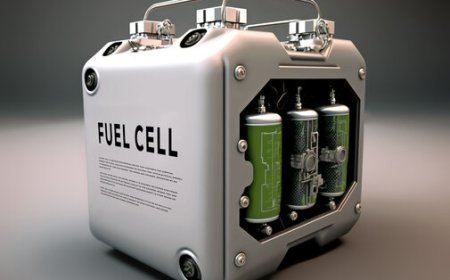Top Clean City In India
Indore is consistently ranked as the Top Clean City in India, thanks to its effective waste management, public awareness campaigns, and sustainable urban planning practices.

Cleanliness is not just about aestheticsits a symbol of progress, health, civic sense, and sustainable living. In recent years, India has taken great strides in transforming urban sanitation and cleanliness through various national missions. At the forefront of this transformation is Indore, which has proudly earned the title of the Top Clean City in India for an incredible seventh consecutive year, according to the latest Swachh Survekshan rankings.
This remarkable achievement highlights not only Indores dedication to cleanliness but also the collective efforts of citizens, government officials, sanitation workers, and urban planners. Lets explore how Indore became the cleanest city in India and why the Swachh Survekshan survey has become a benchmark for urban hygiene and development.
What Is Swachh Survekshan?
Before diving into what makes Indore the Top Clean City in India, it's important to understand the role of the Swachh Survekshan survey.
Swachh Survekshan is Indias largest cleanliness survey, conducted annually by the Ministry of Housing and Urban Affairs (MoHUA) under the Swachh Bharat Mission (Urban). Launched in 2016, the survey assesses cities across various parameters such as:
-
Waste segregation and processing
-
Door-to-door garbage collection
-
Public feedback and citizen participation
-
Open defecation-free status
-
Use of technology in waste management
Over the years, the survey has become increasingly comprehensive, covering thousands of cities and towns. The rankings not only create healthy competition among cities but also help in evaluating the effectiveness of sanitation initiatives across the country.
Indore: The Cleanliness Champion of India
In the latest Swachh Survekshan 2023 rankings, Indore was declared the cleanest city in India for the seventh year in a row. This historic milestone reflects a deeply rooted commitment to hygiene, innovation, and citizen participation.
What Makes Indore the Top Clean City in India?
-
Effective Waste Segregation and Collection
Indore has implemented a 100% door-to-door garbage collection system. Waste is segregated at source into wet, dry, and hazardous waste categories. The city ensures efficient transportation of waste using GPS-tracked vehicles. -
State-of-the-Art Waste Processing
Indore has built a robust waste processing infrastructure. The city converts biodegradable waste into compost and biogas, and dry waste into fuel and recyclable material, reducing the burden on landfills. -
Citizen Engagement
Public awareness campaigns, school initiatives, and civic partnerships are at the heart of Indores cleanliness model. Citizens actively participate in cleanliness drives, which has fostered a strong sense of ownership. -
Innovation in Sanitation
From smart bins and waste-to-energy plants to digital monitoring systems, Indore has embraced technology in sanitation management. The city has also maintained open-defecation-free (ODF++) status. -
Responsive Governance
The Indore Municipal Corporation has shown agility and responsiveness in addressing sanitation issues. Redressal systems, helplines, and mobile apps have made grievance management more efficient.
Other Top Cities in Swachh Survekshan Rankings
While Indore holds the top spot, other cities are not far behind in making India cleaner and greener.
Surat The Runner-Up
Surat, Gujarats commercial hub, secured the second position in the Swachh Survekshan rankings. Known for its textile industry and diamond polishing, Surat has also emerged as a leader in sustainable urban development. It has implemented robust waste management, flood control systems, and green city initiatives, making it one of the most livable cities in India.
Navi Mumbai Clean and Green
Navi Mumbai grabbed the third spot, showcasing excellent sanitation, green spaces, and systematic urban planning. Its well-maintained public spaces, parks, and efficient transportation system contribute significantly to its clean city status.
These cities, along with others like Mysuru, Pune, and Ahmedabad, are setting high standards in urban cleanliness and providing models that other cities can replicate.
Why Cleanliness Matters in Urban India
The importance of cleanliness in Indian cities goes beyond rankings and awards. A clean city contributes to:
-
Public health: Reduced chances of disease outbreaks and better quality of life.
-
Environmental sustainability: Proper waste segregation and processing reduce pollution.
-
Tourism and economy: Clean surroundings attract tourists and investments.
-
Civic pride: Residents develop a sense of responsibility and ownership.
With increasing urbanization, waste generation in cities is on the rise. Without an effective system in place, this can lead to significant environmental and health challenges. That's why initiatives like Swachh Bharat Mission and tools like the Swachh Survekshan survey are crucial to the country's development.
The Role of Citizens in Keeping Cities Clean
The success of Indore and other top-ranking cities is not solely due to government efforts. Citizen participation has been a game-changer in maintaining cleanliness. Here's how individuals contribute:
-
Practicing waste segregation at home
-
Participating in local cleanliness drives
-
Reporting unclean areas through mobile apps
-
Spreading awareness about hygiene practices
-
Supporting plastic-free and eco-friendly initiatives
When citizens take ownership, cleanliness becomes a community effort rather than a municipal responsibility.
Future of Clean India: Goals and Vision
The journey doesnt end with Indores success. The broader goal is to make every Indian city cleaner, greener, and healthier. The government aims to:
-
Strengthen urban waste management infrastructure
-
Promote circular economy principles (recycling and reuse)
-
Introduce smart waste tracking technologies
-
Expand Swachh Survekshan to include environmental sustainability metrics
-
Encourage public-private partnerships in sanitation projects
India is also focusing on Garbage-Free Cities certification, where urban local bodies are evaluated on comprehensive waste management, plastic ban enforcement, and citizen involvement.
Conclusion
The recognition of Indore as the Top Clean City in India for the seventh consecutive year is more than just a titleits a reflection of what sustained effort, innovation, and community participation can achieve. The Swachh Survekshan rankings, led by the Ministry of Housing and Urban Affairs, have been instrumental in encouraging cities to raise the bar on cleanliness.
Following closely behind are Surat and Navi Mumbai, proving that clean cities are not a dream, but a practical and achievable goal. These cities show that with the right policies, infrastructure, and citizen involvement, urban India can become a global benchmark in hygiene and sustainability.
As we move forward, lets draw inspiration from these urban success stories and strive to make cleanliness a shared responsibility. Whether you're in a metro city or a small town, your role in building a cleaner India begins with a single stepat home, at work, and in your community.
Lets keep India clean. Lets celebrate every clean city. Lets aim for a garbage-free future.





























